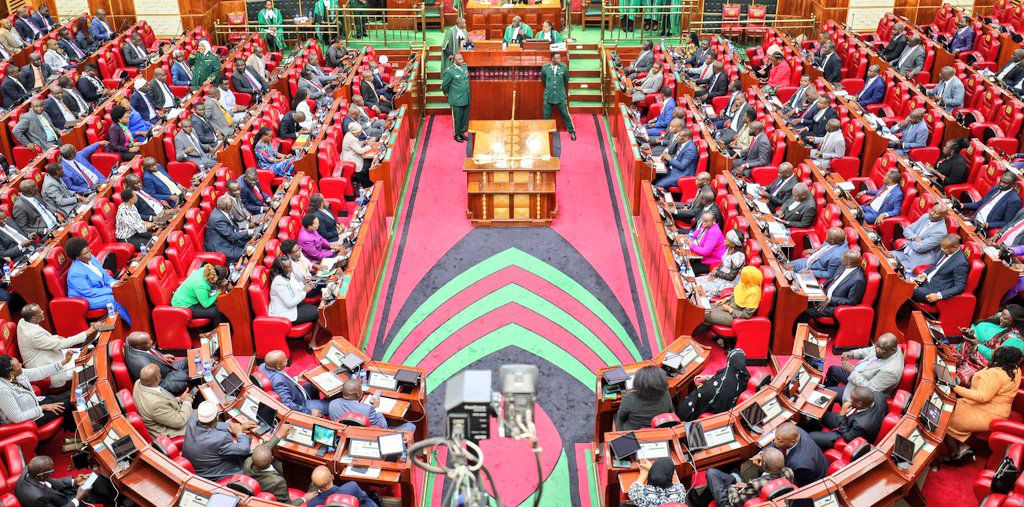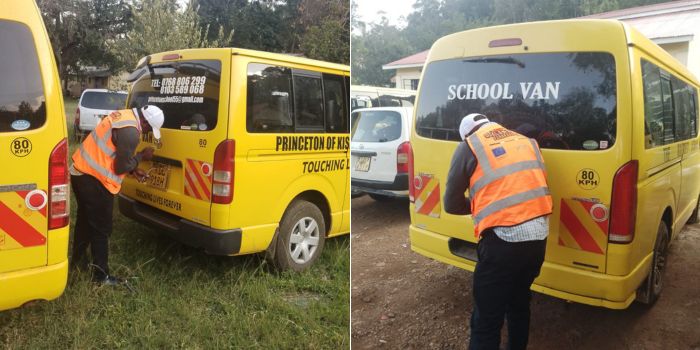On October 19, 2023, Kenya kickstarted a new chapter in the healthcare system as President William Ruto signed four new bills into law.
The four bills were the Primary Health Care Act, 2023, the Digital Health Act, 2023, the Facility Improvement Financing Act, 2023 and the Social Health Insurance Act, 2023.
Consequently, the Social Health Authority (SHA) was established to replace the National Health Insurance Fund (NHIF).

Read More
What is SHA
SHA is mandated to manage the three healthcare funds established through the four healthcare bills.
The three funds under SHA include the Primary Healthcare Fund (PHF), the Social Health Insurance Fund (SHIF), and the Emergency, Chronic and Critical Illness Fund (ECCIL).
It is important to note that each fund will serve a specific purpose and will be available to all Kenyans who register with SHA.
The Three Funds: The Difference & Purpose
1. Primary Healthcare Fund (PHF)
This fund will pay for services Kenyans seek from health facilities graded Levels 1 to 3.
The fund will cover outpatient, inpatient, and maternity services. Optical and end-of-life services sought in health facilities (Level 1-3) will also be catered for by this fund.
Screening and management of pre-cancerous lesions services will also be purchased using this fund.
2. Social Health Insurance Fund (SHIF)
SHIF is the most common fund that is known to many Kenyans. However, it is important to note that it is only one of the funds under SHA.
Unlike the PHF, SHIF will be the fund to cover costs for medical services Kenyans seek from medical facilities graded Levels 4 to 6. The fund will also be used to pay for more services that are usually offered at the Level 4-6 facilities.
The fund will cover outpatient, inpatient, and maternity services. Neonatal and Child health services will also be paid for using this fund.
Renal care treatment, hematology & oncology services, and mental wellness services will also be covered with SHIF.
Surgeries, dental treatments, and imaging services such as X-rays will also be covered using this fund. Notably, overseas treatment is also listed as one of the benefits of this fund.
3. Emergency, Chronic and Critical Illness Fund
This fund will be used to cover emergency and chronic illness costs.
The services that will covered using this fund include emergency and evacuation services which involve patients being taken to hospital with ambulances from their homes or scenes of accidents.
Stabilization and resuscitation services offered to patients will be covered with this fund. Patients who are admitted to the Critical care (ICU and HDU) will also have their treatment paid for using this fund.
SHA Registration
SHA registration is currently ongoing even as the government readies to transition from NHIF and SHA effective from October 1, 2024.
Therefore, Kenyans have been urged to register for SHA for prudent and better management of healthcare in the country.
Registration is also simple and can be done in the comfort of your home using a mobile phone. As of September 24, 2024, 1.6 million Kenyans had registered for SHA.
1. USSD
Kenyans can register for SHA through the USSD *147#.
Dial *147# on your mobile device then proceed to accept the SHA terms and conditions.
Enter your Kenyan identity card number and first name for verification. Proceed by confirming your details.
Enter all your details accurately and await a confirmation message to confirm your registration once done.
2. Website
Kenyans wishing to take part in the self-registration can do so by visiting the SHA website.
"From the SHA website, click on register and start the registration process. Take a few minutes to go through the policies, instructions for self-onboarding and terms and conditions before continuing to the next step," SHA guided on its website.
"After reading the terms and conditions, enter your details on the subsequent pages then proceed to finish your self-registration."
3. Assisted Registration
Kenyans in need of assistance to register can do so by visiting Hudama Centers, SHA offices (previous NHIF offices), or through their Community Health Promoters.
Officials at various institutions will be able to register Kenyans.
Documents Needed for Registration
During the registration exercise, Kenyans are required to have a National ID Number (for adults), a birth certificate (in the case of children), a Foreign Resident Certificate (for foreigners), and a Refugee ID (for refugees).
SHA Contributions: What You Will Be Paying to Be Insured
Kenyans will be required to pay monthly contributions to SHA for their insurance.
- For Kenyans who earn a salary: 2.75 percent of their gross salaries will be deducted and submitted to the authority by their employers. However, the amount cannot be below Ksh300.
- Households whose income is not derived from a salary: They shall pay 2.75 percent of their annual income (the income will be determined through means testing). Similar to the salaried Kenyans, the amount cannot be below Ksh300 per month.
- Kenyans above 25 years old and without income: They will be required to pay Ksh300 per month.
- Notably, the national and county governments will pay the contributions for families who are determined that they cannot make the payments.
Other Important Facts to Know
- NHIF will cease to offer services effective October 1, 2024.
- In readiness for the new health care cover, the government has partnered with various tech companies such as Safaricom to roll out the technology that will be used in the new health cover.
- The tech companies will come up with systems such as the National Health Information Exchange (NIE) which will be used to digitise the records of patients. This is aimed at ensuring that medical professionals can easily access the background information of patients and avoid scenarios of misdiagnosis.
- The companies will also provide tech equipment such as laptops for the healthcare centers.
"To support the implementation of the UHC blueprint, the Ministry of Health has awarded a contract for the implementation of an Integrated Healthcare Information Technology System ("IHTS System") to a consortium led by Safaricom Plc. The consortium includes global patient care digitization firm Apeiro Limited (Apeiro Digital), and Enterprise technology firm Konvergenz Network Solutions Limited (KNS)," Health PS Harry Kimtai stated on September 20.
He added, "It is noteworthy that the Safaricom Consortium will invest the full project cost and recover their investment over ten years by payment of monthly installments (the installment payments will commence from February 2025) based on the successful implementation of the project. The structure of the project will enable the Ministry to roll out the IHTS System without incurring any upfront Capital Expenditure (Capex) and Operating Expenditure (Opex)."









